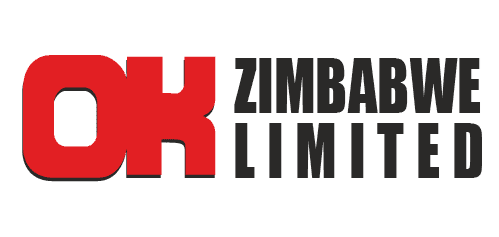The dicy misadventures of business communication
More importantly, how many times do you receive emails? Or, how often do you send emails? Let us be honest, they can be a bit annoying, especially when someone could have just picked up the phone to communicate.
Take Tinashe, for example. Tinashe is the ultimate champion of “Reply All”. Every piece of electronic communication is a golden opportunity for him to showcase his unparalleled ability to hit that button.
Got a company-wide memo about the coffee machine being broken? Tinashe’s on it. Team update on the status of the Q3 project? You bet Tinashe’s replying to everyone.
Tinashe’s emails are a work of art. Every single one is marked “High Importance”. The email about the office potluck next week? High Importance. The memo about recycling bin protocols? High Importance.
That reminder to water the office plants? You guessed it — High Importance. When everything is marked High Importance, nothing is. It’s like a constant state of emergency in Tinashe’s inbox.
Diverging email chains are another gem. One simple query about the lunch menu can turn into an email thread longer than the latest best-selling novel. What started as, “What’s for lunch today?” spirals into a labyrinth of tangential conversations. Suddenly, you’re reading about Karen’s niece’s birthday party, Bob’s new diet, and someone’s random musings on the best brand of staplers.
And let’s not forget the pièce de résistance: “Not sure if you saw my last email . . .” If we had a dollar for every time someone wrote that, we’d all be retired on a beach somewhere, sipping cocktails. Apparently, 25 percent of emails these days contain some variation of this phrase. It’s like a polite way of saying, “I’m pretty sure you’re ignoring me, so here’s a gentle nudge. Again.”
But the real kicker is when work invades our WhatsApp chats. There’s nothing like trying to enjoy your weekend and getting a ping from the boss about Monday’s meeting agenda. No boundaries, no mercy.
WhatsApp was supposed to be our sanctuary, our safe space for memes and family group chats. But no, now it’s another battlefield for business communication.
The WhatsApp woes
Should you even have co-workers viewing your WhatsApp status? Allowing them to do so means they get to pry into your personal lives, see that you’re having issues, or worse, know you’re having way too much fun when you’re supposed to be sick at home.
This visibility can lead to awkward and potentially damaging situations. Everything becomes complicated when you blue-tick someone.
They expect you to respond ASAP. It’s like a high-stakes game of digital poker. Do you acknowledge and reply, or do you wait and risk the follow-up, “Did you get my message?” This pressure to respond immediately can be stressful and intrusive.
And of course, there are the intrusive WhatsApp calls! It’s one thing to get a call from your boss during work hours, but at 10 PM on a Saturday? Really? Should you answer?
If you only return the call the next day, is that wrong? These situations create boundary breaches that would make any privacy advocate cringe.
It’s essential to establish and maintain clear boundaries to protect your personal time and mental well-being.
Then there’s the issue of people stealing your pictures from WhatsApp. Sure, one could argue that they are in the public space, so they can save them if they wish, but isn’t that low-key stalking, especially if you haven’t asked for permission?
It’s like, “Hey Bob, I saw that you saved my picture from the company picnic. Nice to know you’re interested in my life, but maybe next time just ask?” It’s uncomfortable and feels like an invasion of privacy.
Besides, isn’t it weird when Bob wants to show you something from his gallery and the next thing you see is a picture from your WhatsApp status?
This can be incredibly awkward and unprofessional. The professional relationship can only get weird from this point forth. Such incidents blur the lines between professional and personal boundaries, creating discomfort and potential conflicts.
To navigate these complexities, it’s crucial to set clear boundaries and communicate them effectively with your co-workers. Decide what parts of your personal life you’re comfortable sharing and ensure your privacy settings reflect those choices.
Consider who has access to your statuses and whether it’s necessary for professional relationships. Clear communication and mutual respect can help maintain a healthy balance between personal and professional interactions on WhatsApp and other digital platforms.
The early bird and emojis
So just because you are part of the 5am Club doesn’t mean everyone else is. Nothing against the 5am club, but a text at 5am about personal crises? Seriously, can’t it wait for at least 7am?
Apparently not for some. There’s always that one person who thinks their 5am epiphany deserves everyone’s immediate attention. This behaviour can be borderline rude! I suppose there is a reason why work hours are explicitly stated — to prevent infringement on private time and ensure that everyone respects the personal boundaries of their colleagues.
The issue extends beyond just early morning texts. Navigating the fine line between friendliness and formality in digital communication is a daily challenge. Is a thumbs-up too casual? Is a smiley face appropriate?
These seemingly simple questions can become significant dilemmas in a professional setting. You want to appear approachable and friendly, but you also need to maintain a level of professionalism.
And then there are the predictive text mishaps. You might be typing a perfectly polite message, and your phone decides to auto-correct a word into something entirely inappropriate. Nothing says professionalism like an unintended auto-correct slip.
Imagine trying to send a simple “Let’s meet” and having it change to “Let’s meat” or worse, accidentally sending profanities. These mistakes can be embarrassing and potentially damaging to professional relationships.
With these challenges, you might feel like you need a dictionary to navigate the complexities of digital communication. And in fact, there is such a thing as the Dictionary of Emojis!
Emojis have become an integral part of digital communication, and understanding their meanings and appropriate usage can prevent misunderstandings.
Do yourself a favour and get familiar with emoji meanings before you respond in a way that you will regret or decide to ignore altogether.
Group chats and sensitive information
What is the purpose of this group? Half the time, no one knows. We just go along, receiving messages that range from critical updates to random GIFs.
One moment, it’s an important project deadline, and the next, it’s a meme about the latest office joke.
The group chat becomes a blend of essential work communications and informal banter, creating a confusing digital space.
Then there’s the dilemma of whether to reply “noted” to every message sent. Is it necessary? Will people think you’re ignoring them if you don’t?
The pressure to constantly engage and acknowledge every piece of communication can be overwhelming. You start to wonder if failing to respond promptly makes you appear disengaged or unprofessional.
And let’s not forget the battery drain. WhatsApp group notifications can be relentless, especially if your phone is buzzing every few minutes with new messages.
This not only drains your phone’s battery but also your mental energy. People might start questioning why you’re not responding to messages immediately, even when you’re off duty.
It becomes a constant intrusion into your personal time, blurring the lines between work and private life.
The fact that sensitive information can be compromised if anyone’s phone is hacked is another concern.
In a work WhatsApp group, where critical updates and confidential information are shared, the risk of a security breach is significant. If even one group member’s phone is compromised, it could lead to a major data leak, endangering the company’s operations and reputation.
Can you politely opt out of the work WhatsApp group because you don’t want blurred lines? It’s a tough call.
On one hand, you want to maintain professional boundaries and keep your personal life separate from work. On the other hand, you don’t want to seem disengaged or uncooperative. Opting out might be perceived as avoiding responsibility or lacking team spirit, even if your intention is simply to preserve a healthy work-life balance.
The auditor’s nightmare
Imagine the first thing an auditor asks: “Why is a Facebook/Meta product being used for company communication without any payment or safeguards?” Data exfiltration, reputation risks, harassment — the list goes on. Here are some practical concerns:
Data security and privacy: WhatsApp isn’t built for corporate security. Sensitive information shared over WhatsApp can be intercepted or leaked. Imagine a spouse or child using your phone and accidentally accessing sensitive work information. Or even worse, your WhatsApp account is hacked and someone gains access to a wealth of private information from your device.
Reputation management: Inappropriate messages sent by employees can harm the company’s reputation. This risk is heightened by the informal nature of WhatsApp.
Harassment and misconduct: The informal setting can lead to unprofessional conduct, making it harder to monitor and address issues like harassment.
Compliance issues: Using WhatsApp for business might not comply with industry regulations, especially in sectors requiring stringent data protection measures.
While the informal communication can start off as humorous, it can quickly take a costly turn for your organization.
Navigating these challenges requires a careful approach, balancing the need for effective communication with the importance of maintaining boundaries and ensuring security.
It’s essential for organisations to establish clear guidelines for the use of WhatsApp and other informal communication channels, ensuring they serve their intended purpose without compromising privacy or professional standards.
Practical solutions
- Implement professional communication tools: Use platforms designed for business communication, such as Slack, Microsoft Teams, or Google Workspace. These tools offer better security, compliance, and management features.
- Develop clear policies: Create and enforce a comprehensive communication policy that outlines acceptable use, data protection, and professional conduct. Specify the types of communication suitable for WhatsApp and when to use more secure channels.
- Provide training and resources: Conduct regular training sessions on communication best practices and data security. Educate employees about the risks associated with using personal communication tools for work.
- Separate personal and professional communication: Avoid mandating the use of personal devices for work-related communication. Provide company-owned devices if necessary, with appropriate security measures installed.
- Enhance monitoring and reporting mechanisms: Implement tools to monitor communications for compliance and potential risks. Establish clear channels for reporting inappropriate behaviour and data breaches.
- Prepare for crisis communication: Develop a crisis communication plan to handle incidents swiftly and effectively. Ensure all employees understand their roles in managing communication crises.
Conclusion
So, the next time you hear that WhatsApp ping from a colleague, remember: it’s not just a message. It’s a reminder of the risky dance we do in the age of technology and instant communication. Keep your emojis in check, your predictive text under control, and for the love of all things professional, stop replying all, Tinashe!
Book recommendation : Send: “Why people email so badly and how to do it better”, by David Shipley and Will Schwalbe
Tariro Manamike is a seasoned media and public relations professional with over a decade of experience in broadcast journalism and strategic communication. She is passionate about human-centred design, business communication, and their impact on the bottom line. Tariro writes in her personal capacity and can be reached at tarimanamike@gmail.com-ebusnessweekly









